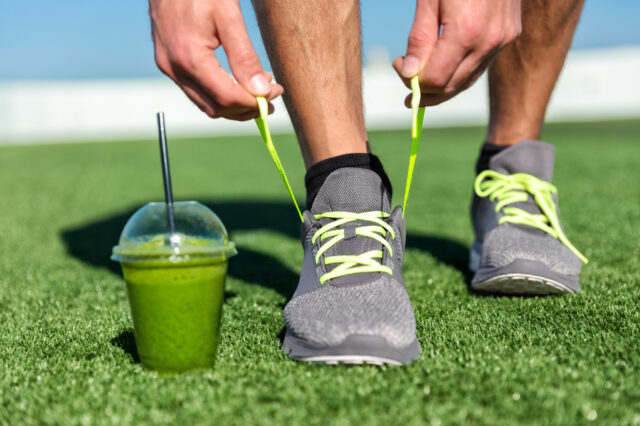Meat or Plants: Which is a Runner’s Best Friend?
Popular documentaries like Netflix’s “Game Changers” are sharing success stories from athletes who have switched to plant-based diets. What does this mean for a performance-hungry runner?

The popularity of plant-based eating is in full bloom. More plant-based options are available in grocery stores and restaurants than ever before. A recent Gallup poll revealed that 1 in 4 consumers have reduced the amount of meat they have eaten in the previous 12 months. Popular documentaries like Netflix’s “Game Changers” are also sharing success stories from athletes who have switched to plant-based diets.
What does this mean for a performance-hungry runner? Like anything in the world of nutrition, it is important to tread carefully.
How do plant-based diets compare to vegan diets?
First of all, a plant-based approach to eating is not the same as a vegan diet. Plant-based diets feature plants as the centerpiece for meal-planning, but it does not mean all animal products are avoided, as is the case with a vegan diet. The research firm Nielsen showed that just 6% of Americans eat vegetarian, but nearly 40% are making the effort to eat more plant-based foods overall.
How does diet affect athletic performance?
In terms of performance improvement, a May 2019 study in the Journal of the International Society of Sports Nutrition compared performance among vegans, vegetarians and omnivores in a single exercise-capacity test. The results showed that despite the nutritional differences in the diets, exercise capacity was similar. Although the study did not control for different training levels, it does support the notion that people can succeed with a variety of nutritional approaches. The bottom line is to get adequate energy and nutrients from a variety of foods.
What’s the best nutrition plan for runners?
The best nutrition advice is to practice with a variety of foods to see what your stomach can handle and how you feel on your run. Participating in a race like the Gate River Run does not present much of a demand on glycogen stores since it is only 15K. Therefore, consuming large amounts of gels or other carbohydrate foods is often not necessary. Fluid intake is the part of your nutrition plan that will need the most attention during the race. About two hours before your run, drink between 17 to 20 ounces of water. During your run, drink between 5 to 10 oz. of water every 15 to 20 minutes. After your run, drink between 16 to 24 oz. of water for every pound lost while running.
Most runners do well by having a small breakfast about three hours before the race starts. This meal also helps top off energy reserves in the liver after an overnight fast, and will keep you from feeling hungry when the race starts. Peanut butter and honey on toast or oatmeal with a banana are good examples of carb-rich foods to get you off the starting line and over that Green Monster.
To discuss your overall health, schedule an appointment at one of UF Health Jacksonville’s primary care centers by calling 904-633-0411 or visiting UFHealthJax.org/primary-care.